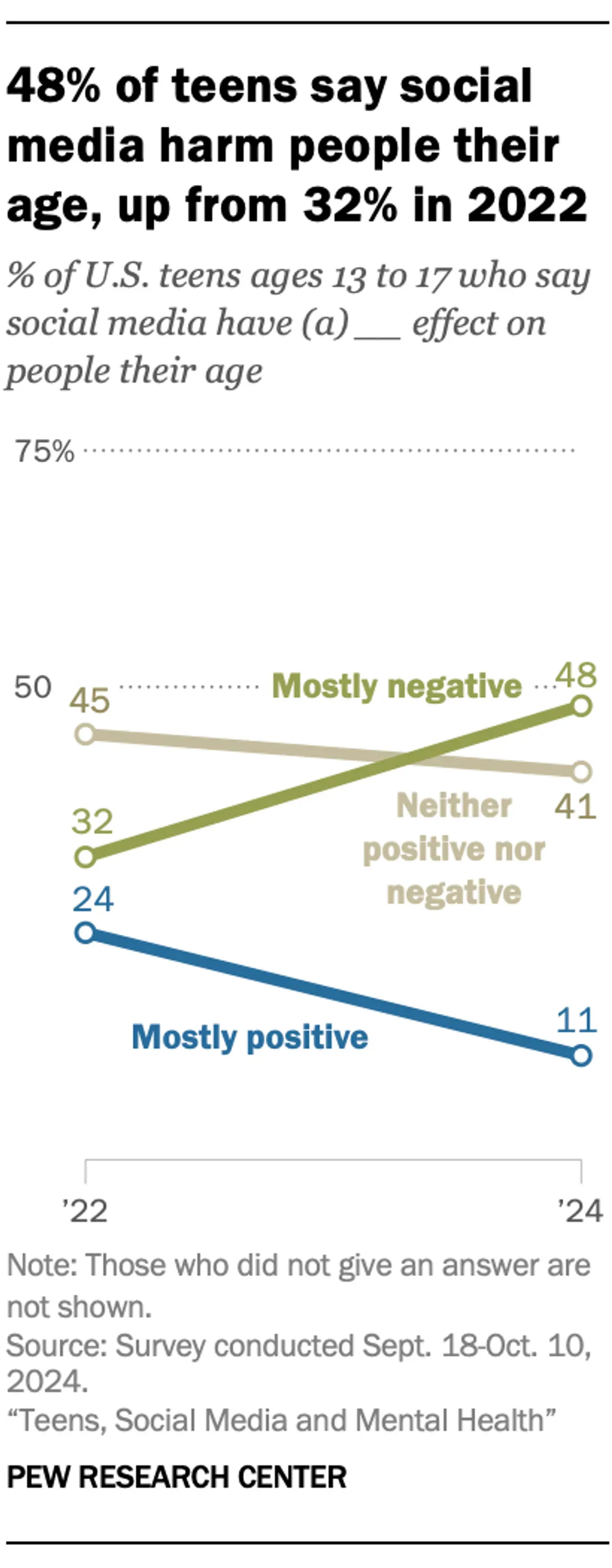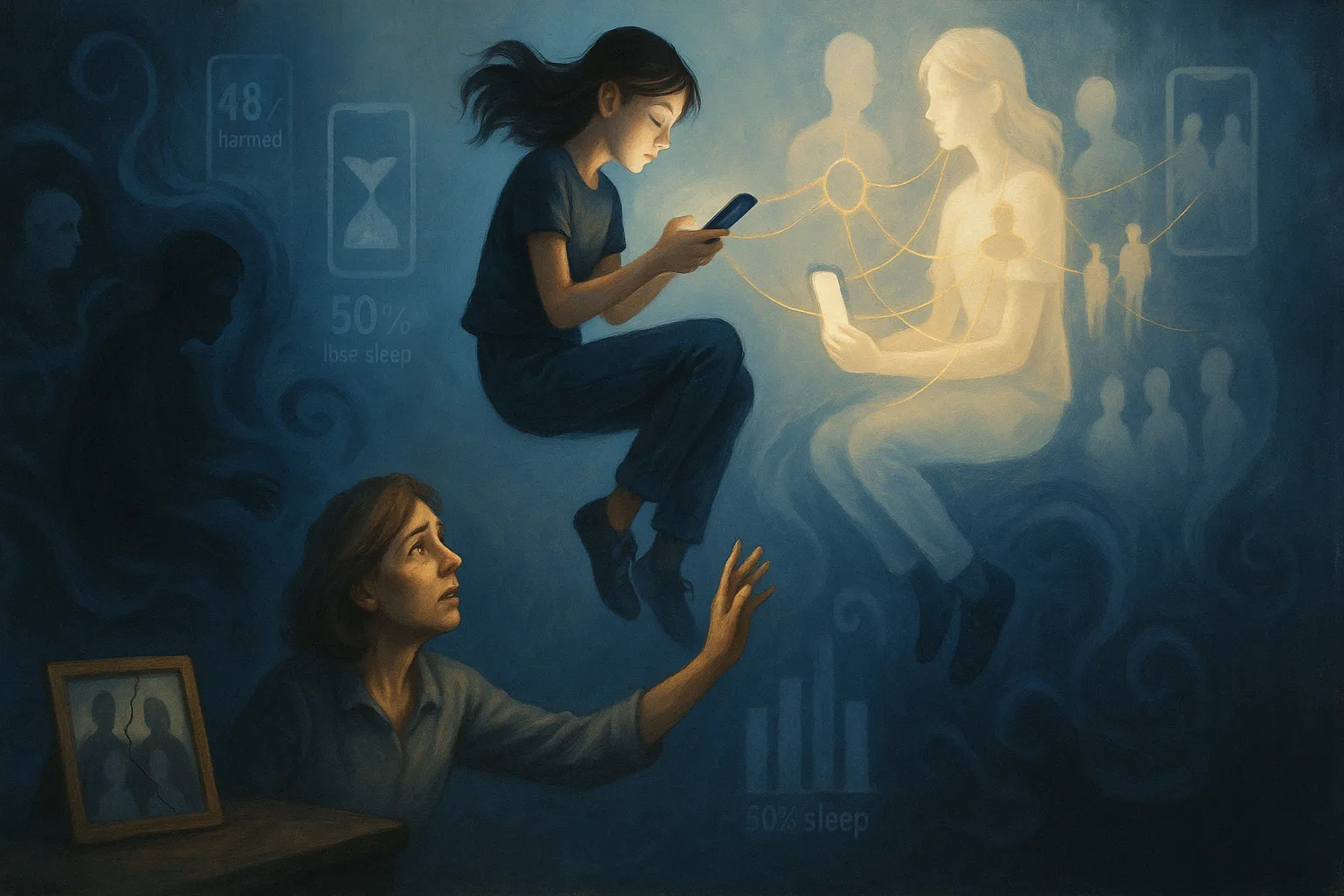The gender gap tells a troubling story. Teen girls report worse mental health impacts than boys, with 25% saying social media hurts their wellbeing compared to 14% of boys. Sleep takes a hit too – half of girls and 40% of boys blame social media for disrupting their rest.
Parents see danger where teens spot connection. While 74% of teens say social media keeps them close to friends, 44% of worried parents point to these platforms as the biggest threat to teen mental health. Mothers worry more than fathers, with 61% expressing deep concern about teen mental health versus 47% of dads.

The screen time problem keeps growing. Now 45% of teens admit spending too much time on social media, up from 36% in 2022. Some push back – 44% say they've cut down on both social media and phone use.
Black teens find more support online than their peers. About half get mental health information through social media, compared to 35% of Hispanic teens and 30% of White teens. They're also more likely to feel accepted and supported by their online communities.
The comfort gap between parents and teens raises red flags. While 80% of parents feel at ease discussing mental health with their teens, only 52% of teens share that comfort level. This disconnect points to deeper communication challenges within families.
Girls face unique pressures online. They report higher rates of social media drama (45% vs 34% for boys), pressure to post popular content (36% vs 26%), and feeling excluded by friends (36% vs 26%). Yet they also find more support and creative outlets than boys on these platforms.
Rising screen time worries match growing awareness. Teen girls lead the charge in cutting back – about half have tried reducing their social media and smartphone use, compared to 40% of boys. But more than half of all teens haven't made any changes.
The friendship paradox reveals social media's complex impact. While most teens credit these platforms for stronger friendships, they increasingly worry about harm to their peers. This contradiction suggests teens struggle to recognize risks in their own social media use.
The mental health resource gap needs attention. Only 34% of teens regularly get mental health information on social media. Of those who do, 63% call it an important resource – suggesting untapped potential for reaching teens where they spend time.
Why this matters:
- The disconnect between personal and perceived harm raises alarms: Nearly half of teens think social media hurts their generation, but only 14% admit personal harm. This blind spot could leave teens vulnerable while thinking they're immune.
- As screen time rises and mental health concerns grow, we face a critical moment: Parents worry while teens seek connection through screens. Without better dialogue and balanced solutions, this digital divide threatens to deepen the youth mental health crisis.
Read on, my dear:
Pew Research: Teens, Social Media and Mental Health










